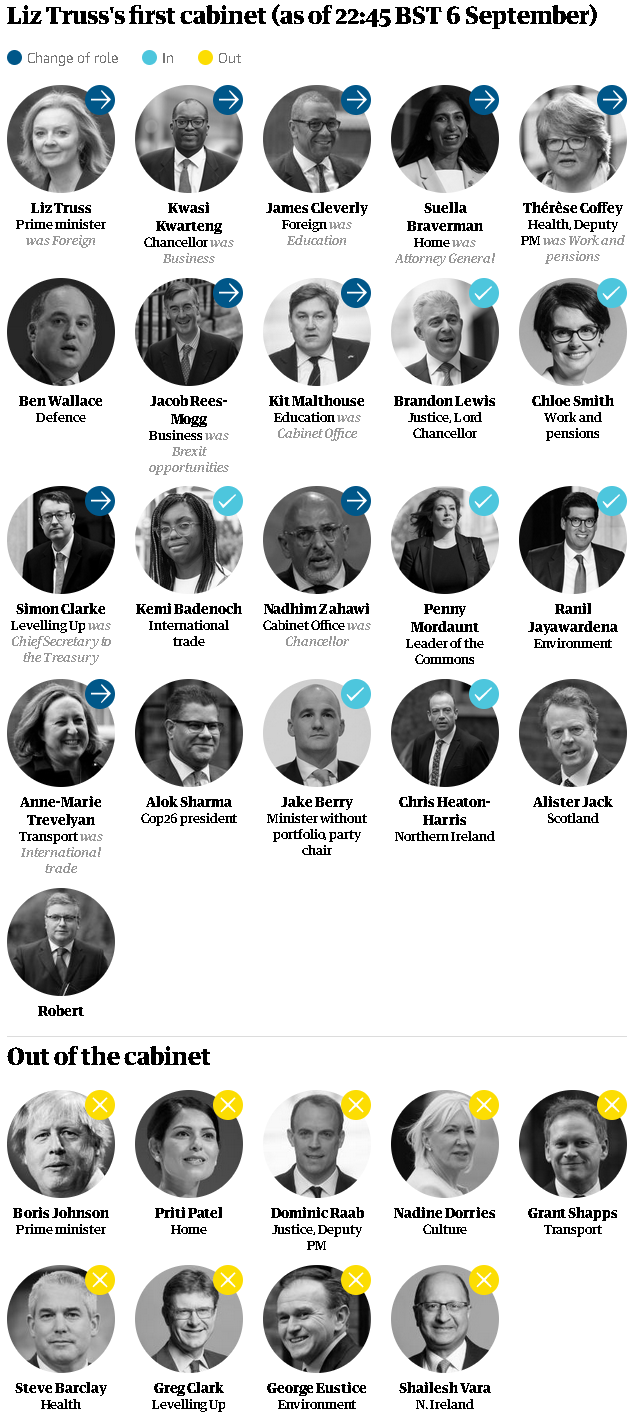Braverman has pitched herself to the right of her predecessor – and is expected to move quickly to sideline ECHR
The issue of migration, which dominates the new home secretary’s in-tray, was at the forefront of Suella Braverman’s thoughts when she first arrived in parliament in 2015.
In her maiden speech, she recalled how her father, Christie Fernandes, had fled tensions in Kenya to seek a new life in the UK.
“On a cold February morning in 1968, a young man, not yet 21, stepped off a plane at Heathrow airport, nervously folding away his one-way ticket from Kenya. He had no family, no friends and was clutching only his most valuable possession, his British passport. His homeland was in political turmoil,” she said.
Critics have wondered whether Braverman might suffer pangs of conscience about sending Afghans and Iranians to Rwanda given that they, like her father, say they are fleeing political turmoil.
Her previous comments suggest not. Braverman, who has pitched herself to the right of her predecessor, Priti Patel, is expected to move quickly to sideline the European convention on human rights (ECHR) – which was used to stop the attempted deportation flight to Rwanda.
“Leaving the ECHR is the only solution which solves the problem, and is entirely consistent with international law,” she wrote in July’s issue of the House magazine.

As well as immigration and the surge in the number of people crossing the Channel in small boats, Braverman will also be dealing with a record number of unprocessed asylum cases, plunging rates of prosecutions for sexual offences and burglaries, and a crisis of confidence within the police after a series of scandals.
Sue-Ellen Cassiana Braverman was born in Harrow, north-west London, to Fernandes, a Kenyan of Christian Goan origin, and Uma Fernandes, a Mauritian of Indian origin.
Their only child, she was doted on by both parents who were hugely ambitious for her, according to friends.
The couple joined the Conservative party in the 1980s when Sir Rhodes Boyson, the bewhiskered Thatcherite hardliner, was the local MP for Brent North.
Christie worked in the voluntary sector for many years, according to Tory friends, while Uma worked in the NHS for 45 years and stood successfully to become a Conservative councillor.
Braverman won a partial scholarship to attend Heathfield private school before studying Law at Queens’ College, Cambridge. She later gained a master’s degree in Law from the Panthéon-Sorbonne in Paris and then qualified as a New York attorney.
Tory allies say she showed ambition to become an MP from a young age – and had attended Conservative events in Harrow and canvassed with her parents.
She unsuccessfully fought several Labour and Lib Dem-dominated seats before being elected in Fareham, Hampshire at the 2015 general election.
In February 2018, she married Rael Braverman, a manager at Mercedes, at the House of Commons. They had their first child in 2019 and a second in 2021.
She was given her first ministerial job by Theresa May, when she was appointed a Brexit minister in 2018. She resigned after the then Brexit secretary, Dominic Raab, walked out in disagreement over May’s proposed divorce deal with the European Union.
Boris Johnson brought her back into the fold, promoting her to a seat around the cabinet table as attorney general in 2020. She was made QC at the time of this appointment.
Braverman has won many supporters among hardline backbenchers by her aggressive insistence that there is a culture war raging in the UK. She has described the British empire as a force for good and said Twitter was a “sewer of leftwing bile”.
When four people were cleared of tearing down a statue of the slave trader Edward Colston, Braverman was heavily criticised for saying she was considering whether to refer the case to the court of appeal.
One ally said she was unafraid about taking on vested interests. “She will be Priti on steroids. Watch this space,” he said.















